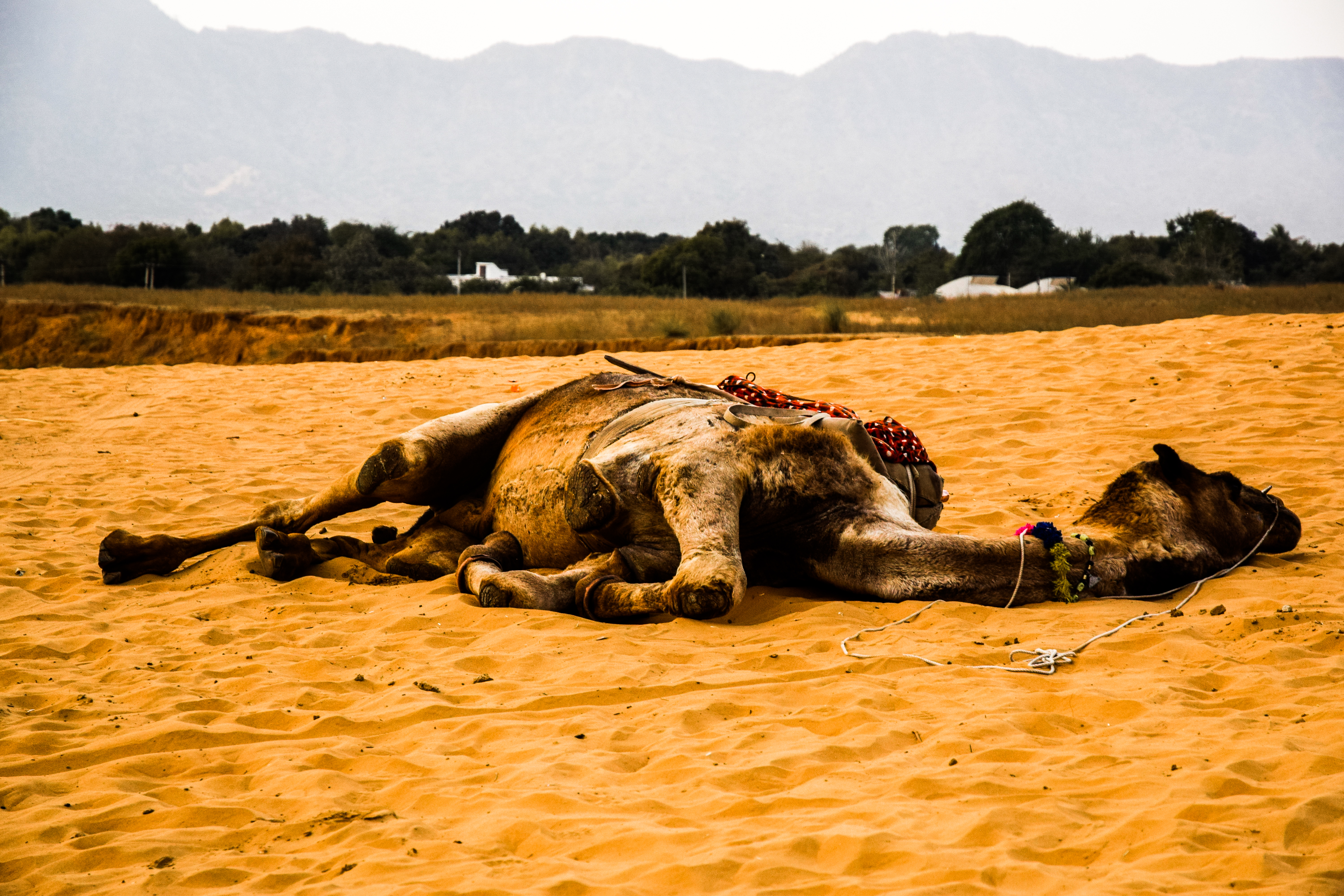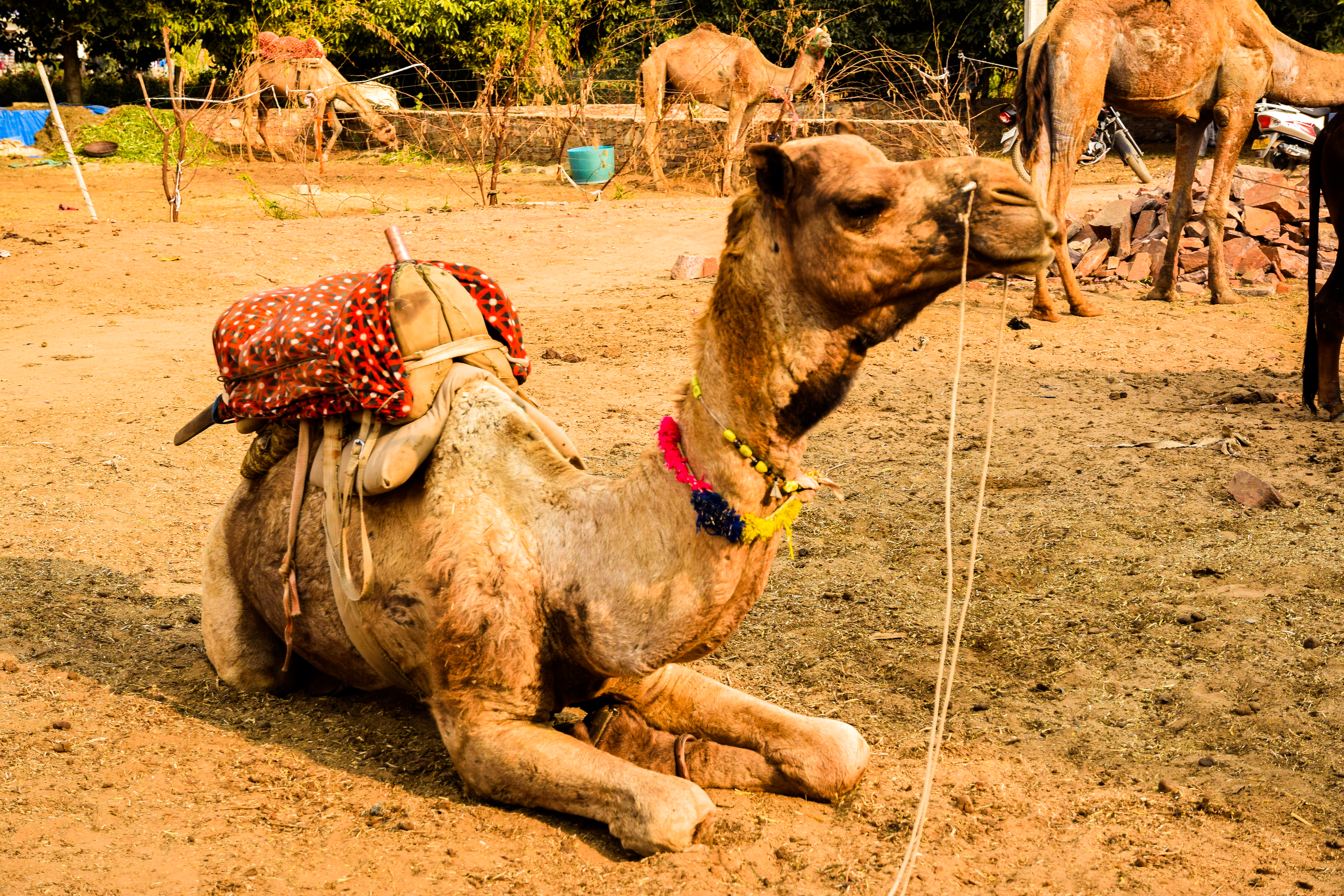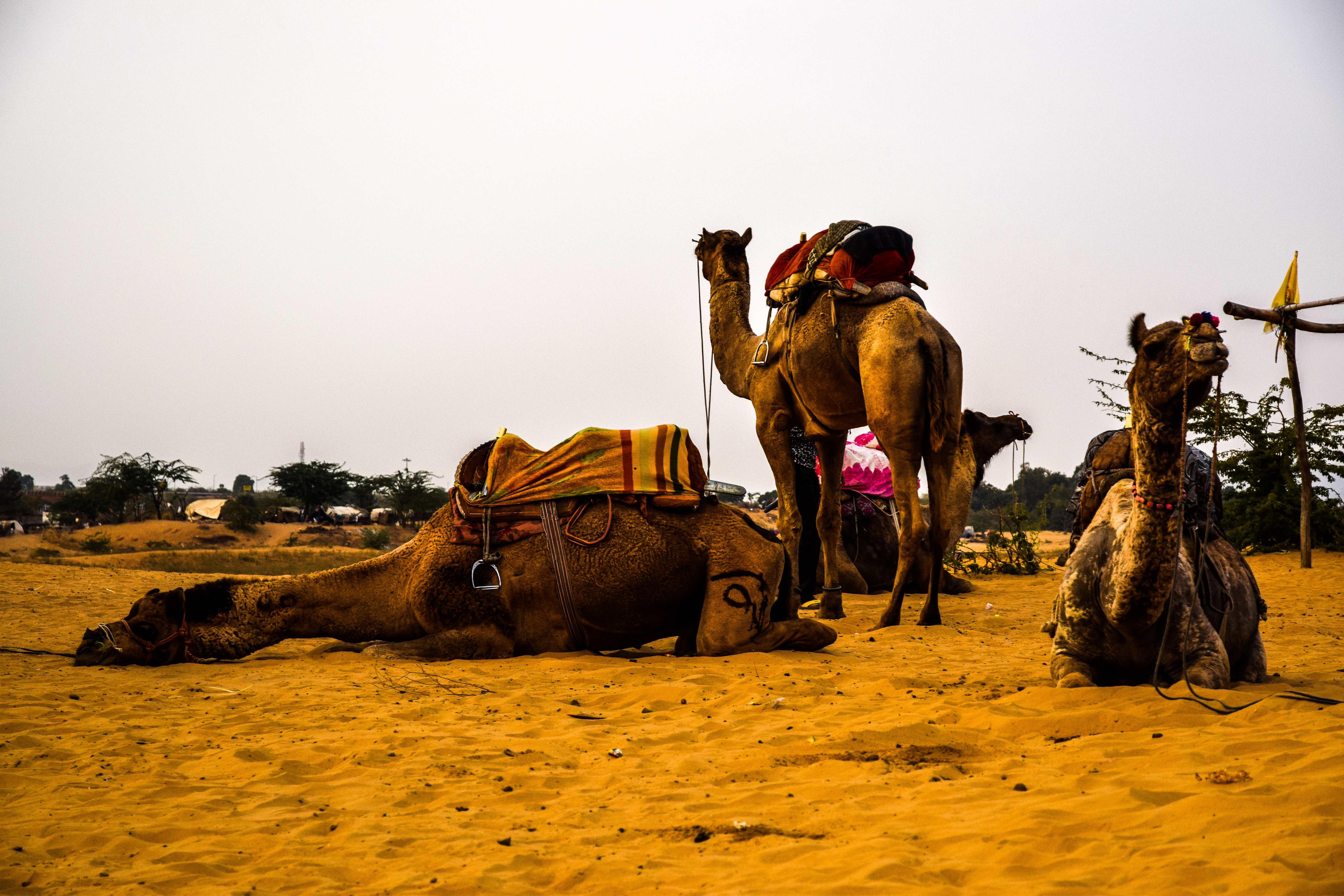
The camels looked happy enough. It wasn’t until closer inspection that I began to notice things. The wooden splint pierced through the nose with ropes attached to either side to control the camel. The various sores and scratches across the camel’s body.
During my recent travels around Rajasthan, India, one of the highlights of the tourism scene is the chance to ride a camel. Perhaps nowhere more so than in Jaisalmer, in the far northwest of the “Desert State”.
In my attempts to be a responsible traveller, I searched high and low (or rather browsed several pages of google results) for advice on ethical camel riding – but to little avail. Whereas larger mammals, such as elephants, have had reams written about them and the inhumane process that lies behind domesticating them or “breaking their spirit” so that they can be ridden by humans, camels have received no such attention. Camels have, after all, been domesticated for up to 3,000 years.
Recent events have shown though, that concern for the impact of tourism on animals has spread well beyond the plight of the elephant. Uproar over the case of Max, the horse who collapsed while pulling tourists in a carriage around New York’s Central Park earlier this year, shows that deeper questions are being asked.
Despite the questions, action seems to lag behind: just last week I was shocked to see instagram posts of adults sitting atop ostriches at a tourist attraction in Vietnam.
Ethical Camel Riding
But what about camels?

What I saw in Pushkar, Rajasthan – home to the famous annual Pushkar Camel Fair – and read about from other reports of camel riding in Jaisalmer did not fill me with comfort. I decided to avoid the desert safari scene in Jaisalmer altogether. Why? Because the animals did not look well nourished nor well cared for.
Many of the arguments used in favour of camel riding are similar to justifications for elephant riding: “Camels are used to heavy burdens and have been used for carrying heavy loads for years,” or maybe “Camels are no longer used for transport, so without tourists they will be out of work.” Perhaps the strongest argument is that, through tourism, camels earn a lot of money for their owners and keepers in rural parts of a state where it would be hard to replace that with other sources of income.
The parallels don’t end there. Like elephants, camels also need to wear heavy metal seats to transport humans on top of them. In many of the cases that I saw in Rajasthan, the pads between the camel’s back and the metal seat were thin, worn and threadbare. When I asked why the wooden/metal spike was needed through the camel’s nose (to which the “steering” ropes are attached), I was told it was to control the camel. The spikes seem to be a unique feature to camels in that part of India, as in other parts of the Middle East where dromedary camels are ridden, the ropes just seem to be loosely secured around a camel’s nose.
Like all animal welfare and tourism issues, the answer is: “It’s complicated”. The simplest solution would be to not ride any animal at all.
Is Ethical Camel Riding Possible?

Personally, I do believe that ethical animal interactions are possible, but I am not a conservationist, animal welfare researcher or scientist. I have found no evidence for or against riding being damaging to camels.
It is rather an animal’s owner or keeper that can make the difference to an animal’s welfare, and our buying choices as travelers can have a direct impact on what type of behavior we want to support.
Ethical Traveler recommends researching for ethical tour operators in advance, and choosing those who actively mention good treatment of their animals. We also suggest checking the condition of animals with your own eyes before agreeing or paying to ride them. Unfortunately, it’s many of the cheap, budget operators in popular tourist locations that cut the most corners and work their animals hardest. Avoiding these setups and booking with a higher end safari operator company in advance may improve odds of better cared for camels.
From my time in Rajasthan, the happiest camels I saw were a herd in the middle of the Thar desert that I passed by in a jeep, wandering freely and happily munching trees, not a tourist or saddle in sight.
Ultimately I believe that we need to answer the question for ourselves. If we refuse to ride one animal, why would we choose to ride another?
Ellie Cleary is the founder of Soul Travel Blog, a blog that looks to help travelers create positive impact through mindful and responsible travel. You can read more about Ethical Travel in Rajasthan, India on Ellie’s blog.
Read Ethical Traveler's Reprint Policy.
